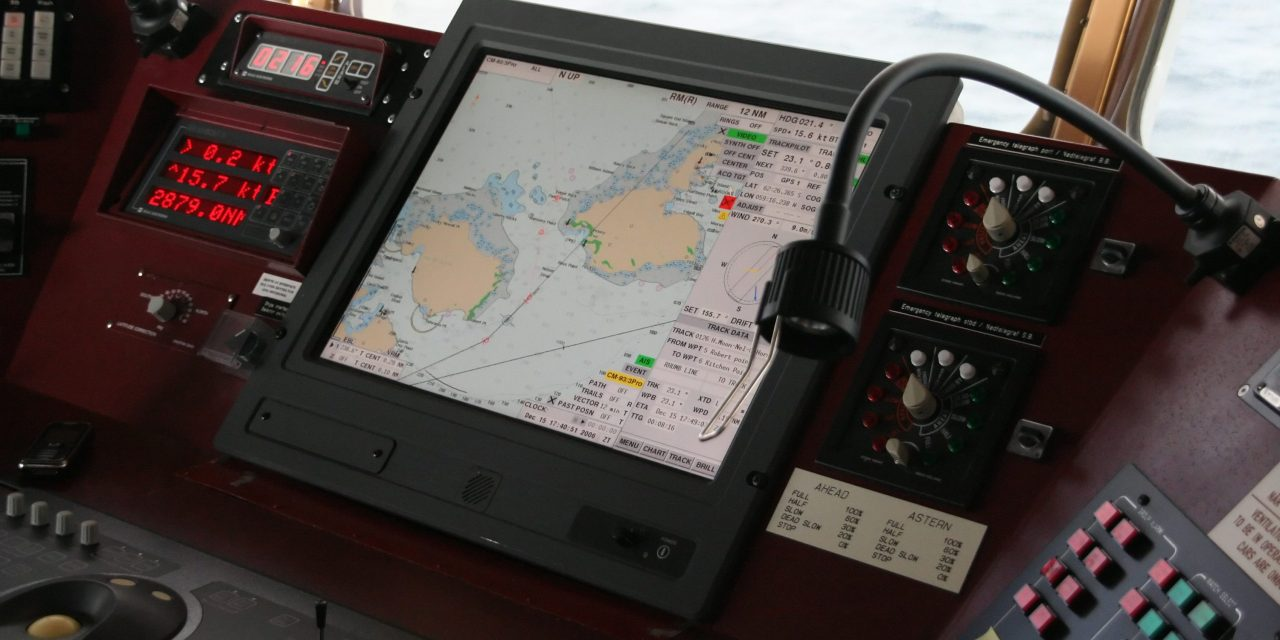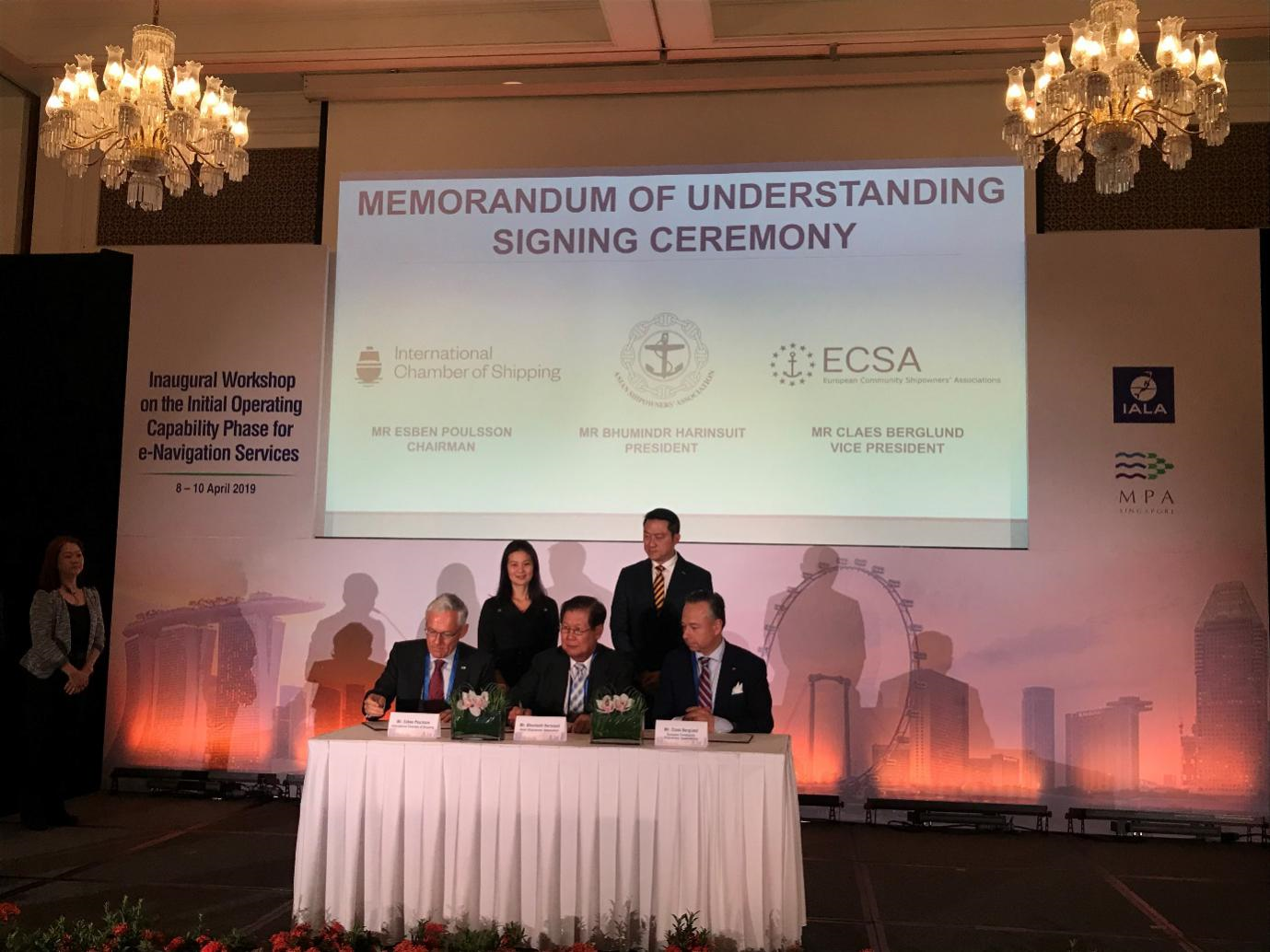
ECDIS - Doing away with paper charts - Credit: safety4sea.com
Summary: E-navigation is gaining in importance and acceptance as interest grows in autonomous shipping and the recent MOU by ICS, ASA, and ECSA may lead to global rules.
Defined as the collection and analysis of marine information on board and ashore by electronic means, e-navigation aims to make marine navigation safer and more reliable, which in turn will reduce accidents and damage to the environment.
As international efforts to operationalise e-navigation - which is supported by the International Maritime Organization (IMO) intensify, the Maritime and Port Authority of Singapore (MPA) has co-organised a workshop with the International Association of Marine Aids to Navigation and Lighthouse Authorities (IALA) during the recent Singapore Maritime Week to discuss its possible implementation in real-world operations.
"Singapore's election into the IALA Council in 2018 has presented more opportunities to work closely with key players around the world, and it looks forward to collaborating with like-minded partners under the broader framework of the IMO to support the implementation of e-navigation," MPA Chief Executive Quah Ley Hoon says.
Adding, IALA Secretary General Francis Zachariae calls the workshop "a golden opportunity to highlight the tangible operational benefits of e-navigation and how they will make a real difference to mariners and other users in their daily operational life."
MOU between ICS, ASA, ECSA can contribute to global rules for E-navigation
The workshop was also notable for the signing of a key Memorandum of Understanding (MOU) by three major international industry bodies - the International Chamber of Shipping (ICS), the Asian Shipowners' Association (ASA), and the European Community Shipowners' Association (ECSA).
Through the MOU, the three associations which represent over 90% of the global merchant fleet intend to cooperate on matters affecting the interests of shipowners and operators, including technical and operational matters and promotion of best practices throughout the industry such as e-navigation solutions.
Highlighting the need for international regulations on key areas, including e-navigation, ICS Chairman Esben Poulsson said "shipping is a global industry requiring global rules."
"It is only natural that as the representatives of the world's national shipowner associations that we should further cement our relationships to ensure that we work as effectively as possible in support of a global regulatory framework for shipping and in opposition to unwelcome regional or unilateral initiatives that may impede the efficiency of maritime trade," he added.
The coming together of three major global shipowner bodies arrives at a time of increasing change within the shipping sector as it faces growing protectionism as well as increased trade tension between the US and China.
"It is vital that the interests of Asian shipping, which controls an increasingly large proportion of the world fleet, are properly represented at the global level, especially with the increasing importance of Asian economies to overall demand for shipping services. It is of utmost importance that shipowners outside our region are fully aware of local developments that may affect their operations," says ASA President Bhumindr Harinsuit.
"The co-operation will also allow them to further enhance joint efforts to represent the best interests of shipowners at international bodies such as the IMO or when dealing with European Union institutions," ECSA Vice President Claes Berglund says.
The maritime policies of the EU have a significant impact on regulatory developments at major international bodies such as the IMO, with major implications for ship operators in Europe and globally.

